-
 bitcoin
bitcoin $87959.907984 USD
1.34% -
 ethereum
ethereum $2920.497338 USD
3.04% -
 tether
tether $0.999775 USD
0.00% -
 xrp
xrp $2.237324 USD
8.12% -
 bnb
bnb $860.243768 USD
0.90% -
 solana
solana $138.089498 USD
5.43% -
 usd-coin
usd-coin $0.999807 USD
0.01% -
 tron
tron $0.272801 USD
-1.53% -
 dogecoin
dogecoin $0.150904 USD
2.96% -
 cardano
cardano $0.421635 USD
1.97% -
 hyperliquid
hyperliquid $32.152445 USD
2.23% -
 bitcoin-cash
bitcoin-cash $533.301069 USD
-1.94% -
 chainlink
chainlink $12.953417 USD
2.68% -
 unus-sed-leo
unus-sed-leo $9.535951 USD
0.73% -
 zcash
zcash $521.483386 USD
-2.87%
Cloud Mining Services Review: A Guide to Choosing a Legitimate Platform.
Cloud mining offers crypto earnings without hardware, but watch for scams—prioritize transparency, realistic returns, and verified providers to reduce risks.
Nov 04, 2025 at 06:54 pm
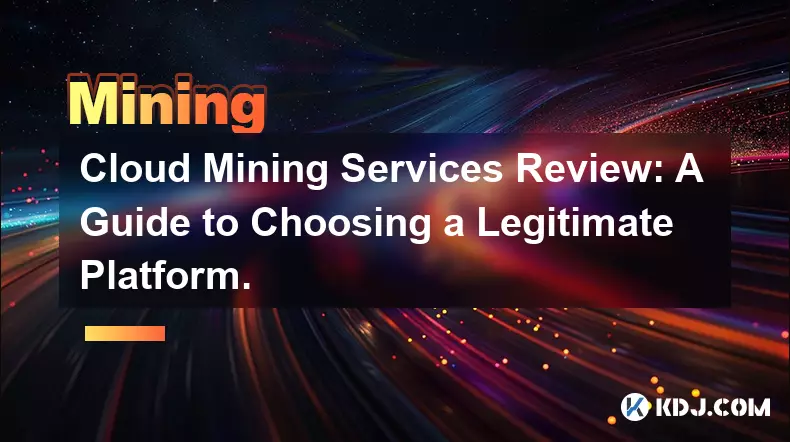
Understanding Cloud Mining in the Cryptocurrency Ecosystem
1. Cloud mining allows individuals to participate in cryptocurrency mining without owning or managing physical hardware. By purchasing a mining contract, users rent computing power from data centers located around the world. This model lowers the entry barrier for those interested in earning digital assets through proof-of-work mechanisms.
2. The appeal lies in convenience—no need to handle equipment setup, electricity costs, or cooling systems. Instead, operators manage everything, and participants receive a share of mined coins based on their contracted hash rate. This has made cloud mining especially popular among retail investors seeking passive income streams.
3. However, the lack of transparency in operations raises concerns. Since users cannot verify the actual existence or performance of mining rigs, fraudulent platforms have exploited this gap. Numerous scams have emerged, promising high returns while delivering nothing in return.
4. Legitimate services provide detailed information about their infrastructure, including real-time dashboards showing active miners, uptime statistics, and maintenance logs. They also publish verifiable proof of ownership for their mining farms, often through geotagged photos or live video feeds.
5. Regulatory oversight remains limited in most jurisdictions, making due diligence essential. Users must research not only the platform’s track record but also its leadership team, partnerships with established mining manufacturers, and legal compliance status.
Red Flags to Watch for When Evaluating Providers
1. Unrealistic profitability claims are one of the most common warning signs. Platforms advertising daily returns above 2% should be treated with extreme skepticism. Mining rewards depend on network difficulty, coin price, and electricity efficiency—all fluctuating factors that rarely support such consistent gains.
2. Lack of transparency about facility locations or mining hardware models is another major red flag. Reputable companies disclose details like ASIC models (e.g., Bitmain Antminer S19), power consumption rates, and geographic distribution of servers across regions like Kazakhstan, Canada, or Iceland.
3. Absence of withdrawal history or user testimonials on independent forums indicates potential manipulation. Scam platforms often fabricate reviews or suppress negative feedback. Genuine services encourage open discussion and maintain active communities on Reddit, Telegram, or Discord.
4. Hidden fees buried in contracts can erode profits over time. Some operators charge excessive maintenance fees, dynamic electricity adjustments, or mandatory reinvestment clauses. These terms may only become visible after signing up, trapping users in unprofitable agreements.
5. Poor customer support responsiveness signals deeper operational issues. If inquiries go unanswered for days or weeks, it suggests inadequate infrastructure or intent to avoid accountability. Reliable platforms offer multilingual support with ticket tracking and SLA commitments.
Selecting a Trustworthy Cloud Mining Platform
1. Start by verifying domain registration and company incorporation records. Use WHOIS lookup tools to check how long the business has been operating and whether corporate details match official registries. Long-standing entities with registered offices in regulated economies tend to be more reliable.
2. Analyze the payout structure and contract duration options. Transparent providers clearly outline expected earnings using current network conditions, allowing users to simulate returns under different scenarios. Contracts should allow early termination or resale options on secondary markets.
3. Look for third-party audits or partnerships with known blockchain analytics firms. Some platforms collaborate with companies like Chainalysis or undergo periodic security assessments from firms such as Cure53. These associations enhance credibility and demonstrate commitment to integrity.
4. Examine the referral program design. While many legitimate platforms offer incentives for referrals, overly aggressive multi-level marketing structures often indicate a pyramid scheme disguised as mining. Sustainable models focus on service quality rather than recruitment volume.
5. Test the withdrawal process with a small initial investment. Confirm that funds arrive within stated timeframes and that there are no unexpected delays or additional verification hurdles. Consistent and predictable payouts reflect backend stability and financial health.
Frequently Asked Questions
What happens if a cloud mining company shuts down unexpectedly?In cases where a provider ceases operations, users typically lose access to their contracted hash power. Without asset ownership, there is little legal recourse unless the company is subject to jurisdiction with consumer protection laws covering digital services. Always assume the risk of total capital loss when engaging with any cloud mining platform.
Can I mine multiple cryptocurrencies through a single cloud mining contract?Some platforms offer auto-switching algorithms that direct hash power to the most profitable coin at any given moment, then convert earnings into a stablecoin or preferred currency. Others lock users into specific algorithms like SHA-256 (Bitcoin) or Ethash (Ethereum Classic). Flexibility depends on the provider's technical capabilities and market strategy.
Are cloud mining earnings taxable?Yes, in most countries, income generated from cloud mining is treated as taxable revenue. Tax authorities such as the IRS consider mined tokens as ordinary income valued at fair market price on the date of receipt. Users must maintain accurate records of deposits, withdrawals, and contract costs for compliance purposes.
Do reputable cloud mining platforms require KYC verification?Established services often implement Know Your Customer (KYC) procedures to comply with anti-money laundering regulations. This includes submitting government-issued ID, proof of address, and sometimes facial recognition scans. While privacy-focused users may find this intrusive, it generally correlates with higher regulatory adherence and reduced fraud risk.
Disclaimer:info@kdj.com
The information provided is not trading advice. kdj.com does not assume any responsibility for any investments made based on the information provided in this article. Cryptocurrencies are highly volatile and it is highly recommended that you invest with caution after thorough research!
If you believe that the content used on this website infringes your copyright, please contact us immediately (info@kdj.com) and we will delete it promptly.
- White House Brokers Peace: Crypto, Banks, and the Future of Finance
- 2026-01-31 18:50:01
- Rare Royal Mint Coin Discovery Sparks Value Frenzy: What's Your Change Worth?
- 2026-01-31 18:55:01
- Pi Network's Mainnet Migration Accelerates, Unlocking Millions and Bolstering Pi Coin's Foundation
- 2026-01-31 18:55:01
- Lido's stVaults Revolutionize Ethereum Staking for Institutions
- 2026-01-31 19:25:01
- MegaETH's Bold Bet: No Listing Fees, No Exchange Airdrops, Just Pure Grit
- 2026-01-31 19:20:02
- BlockDAG Presale Delays Raise Questions on Listing Date Amidst Market Scrutiny
- 2026-01-31 19:15:01
Related knowledge
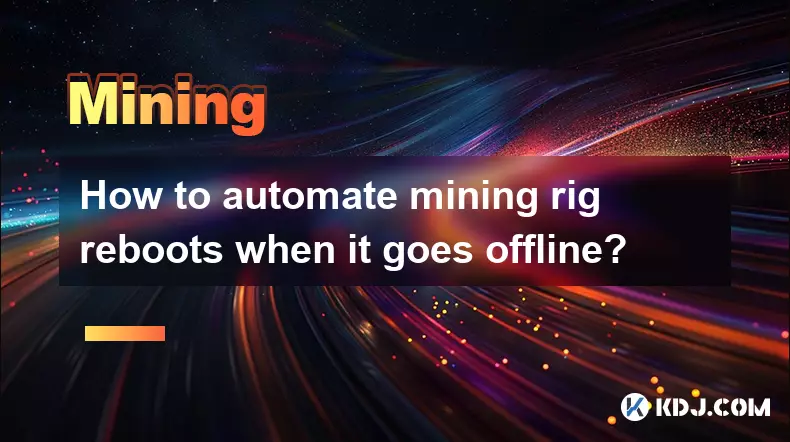
How to automate mining rig reboots when it goes offline?
Jan 23,2026 at 11:00pm
Monitoring System Integration1. Deploy a lightweight agent on the mining rig’s host OS that continuously reports hash rate, GPU temperature, and pool ...
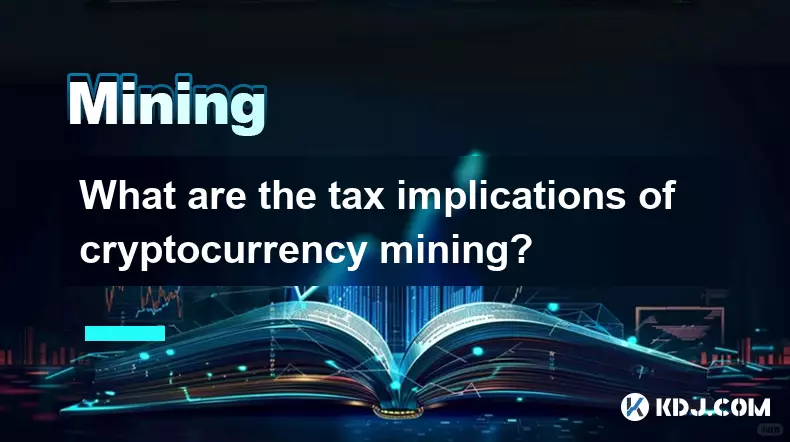
What are the tax implications of cryptocurrency mining?
Jan 23,2026 at 02:40am
Tax Treatment of Mining Rewards1. Cryptocurrency received as a reward for mining is treated as ordinary income by the IRS at the fair market value on ...
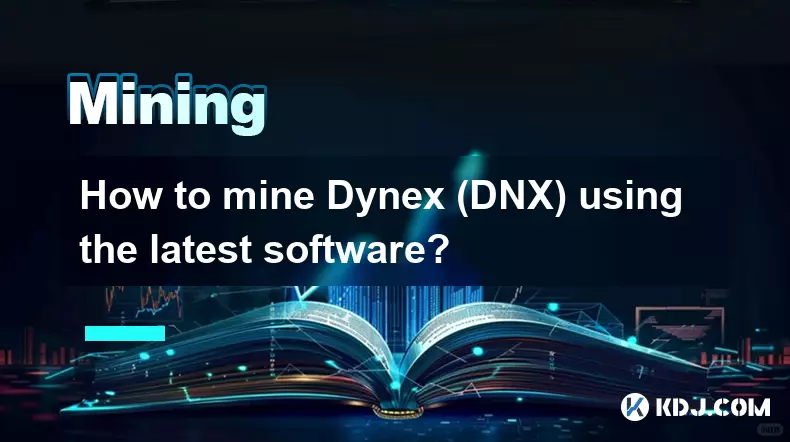
How to mine Dynex (DNX) using the latest software?
Jan 22,2026 at 10:00am
Understanding Dynex Mining Fundamentals1. Dynex (DNX) operates on a proof-of-work consensus mechanism optimized for neuromorphic computing workloads, ...
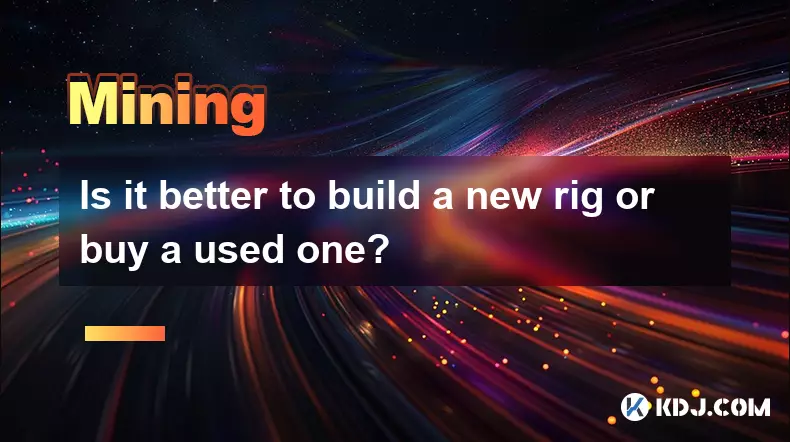
Is it better to build a new rig or buy a used one?
Jan 24,2026 at 10:20pm
Cost Efficiency Analysis1. New mining rigs come with manufacturer warranties, typically covering components for one to three years. This assurance red...
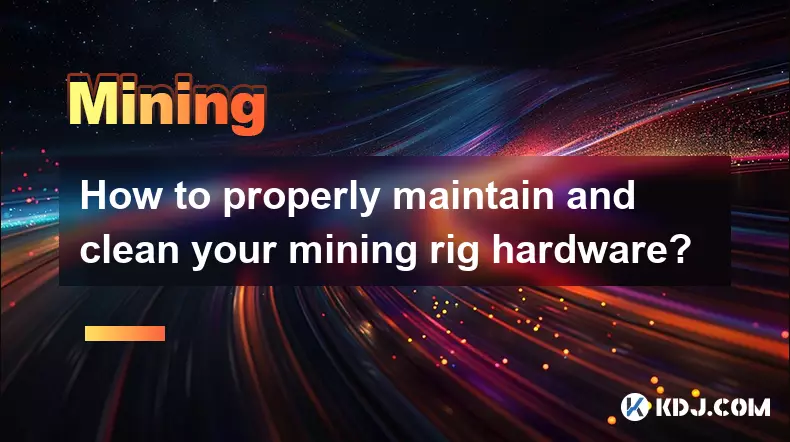
How to properly maintain and clean your mining rig hardware?
Jan 19,2026 at 11:00am
Cooling System Inspection and Optimization1. Dust accumulation inside fans and heatsinks directly reduces thermal dissipation efficiency, leading to h...
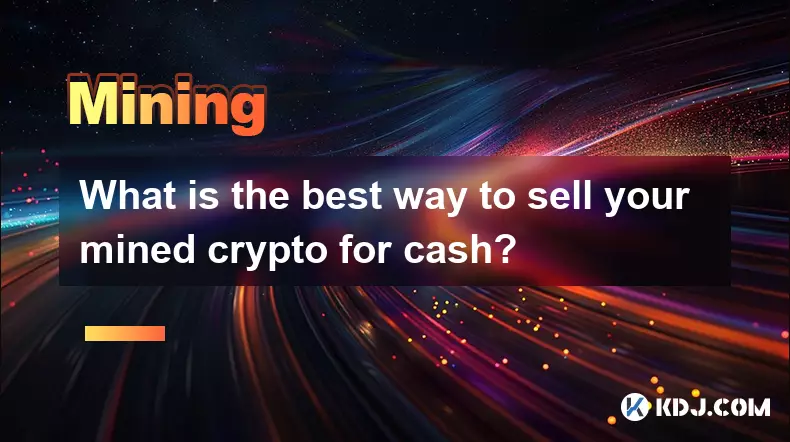
What is the best way to sell your mined crypto for cash?
Jan 20,2026 at 02:59am
Choosing the Right Exchange Platform1. Select an exchange with strong regulatory compliance and a proven track record of secure withdrawals. Platforms...

How to automate mining rig reboots when it goes offline?
Jan 23,2026 at 11:00pm
Monitoring System Integration1. Deploy a lightweight agent on the mining rig’s host OS that continuously reports hash rate, GPU temperature, and pool ...

What are the tax implications of cryptocurrency mining?
Jan 23,2026 at 02:40am
Tax Treatment of Mining Rewards1. Cryptocurrency received as a reward for mining is treated as ordinary income by the IRS at the fair market value on ...

How to mine Dynex (DNX) using the latest software?
Jan 22,2026 at 10:00am
Understanding Dynex Mining Fundamentals1. Dynex (DNX) operates on a proof-of-work consensus mechanism optimized for neuromorphic computing workloads, ...

Is it better to build a new rig or buy a used one?
Jan 24,2026 at 10:20pm
Cost Efficiency Analysis1. New mining rigs come with manufacturer warranties, typically covering components for one to three years. This assurance red...

How to properly maintain and clean your mining rig hardware?
Jan 19,2026 at 11:00am
Cooling System Inspection and Optimization1. Dust accumulation inside fans and heatsinks directly reduces thermal dissipation efficiency, leading to h...

What is the best way to sell your mined crypto for cash?
Jan 20,2026 at 02:59am
Choosing the Right Exchange Platform1. Select an exchange with strong regulatory compliance and a proven track record of secure withdrawals. Platforms...
See all articles





















![Ultra Paracosm by IlIRuLaSIlI [3 coin] | Easy demon | Geometry dash Ultra Paracosm by IlIRuLaSIlI [3 coin] | Easy demon | Geometry dash](/uploads/2026/01/31/cryptocurrencies-news/videos/origin_697d592372464_image_500_375.webp)




















































